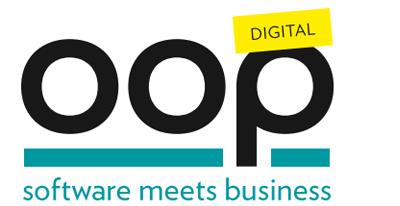
Conference Program
Please note:
On this site, there is only displayed the English speaking sessions of the OOP 2022 Digital. You can find all conference sessions, including the German speaking ones, here.
The times given in the conference program of OOP 2022 Digital correspond to Central European Time (CET).
By clicking on "EVENT MERKEN" within the lecture descriptions you can arrange your own schedule. You can view your schedule at any time using the icon in the upper right corner.
Thema: Transformation
- Dienstag
01.02. - Mittwoch
02.02.
How will organizations keep agility alive after their initial agile transformation? The question of what happens if agile becomes daily business is even more intriguing in this post-pandemic COVID era. Will AGILE survive these unparalleled insecure times? Participants in this workshop will explore what is needed to sustainably ‘safeguard’ an enterprise agile delivery culture after the initial ‘agile transformation’. The workshop hosts will share their observations of working in a big financial…
What have we learnt from the transformations in large companies? And how can that help you improving your chances for success?
The DACH30 group is a workgroup of experienced transformation drivers and coaches from over 30 large companies across different industries. One sub-workgroup has been working on these two questions and we recently published our findings.
In this workshop we will share our transformation experiences and work out with you on patterns, that have proven to be helpful in…
Wollen wir unseren Enkeln eine lebenswerte Welt hinterlassen, müssen wir das grundlegende Paradigma unseres Wirtschaftssystems umbauen: Weg vom ausbeuterischen Wirtschaften, hin zu einem regenerativen, demokratischeren und inklusiven Wirtschaften.
Der Vortrag ist ein Plädoyer dafür, nicht auf Politiker, Konzernchefs oder ein Wunder zu warten, sondern selbstbewusst aktiv zu werden. Wir stellen erste Ansätze vor, wie Agilität konkret genutzt werden kann, um den Umbau der Wirtschaft in Angriff zu…
This is a letter from the future: we are working in an organization in a galaxy not so far away … we have a #diverse #social #digital #remote #culture - and we will tell you how we got there. We leave it open to the audience to guess how far this future is away. Or how near they want it to be. Disclaimer: may contain fragments of reality.
Target Audience: Manager, Idealists, Realists, Change Makers
Prerequisites: Open mind
Level: Basic
The idea of looking at your organization as a single coherent system is tempting, but is it realistic? If it isn't, what does that mean for software developers, and how can we make discoverable what we are developing? This talk looks at organizations as ecosystems rather than as systems, and asks what that difference means for software development. It all boils down to focusing on software as components implementing business capabilities, and how to best capture these capabilities and make them…
Leaders of innovation, business and tech are experiencing an unprecedented demand to accelerate the pace of digital transformation. From board rooms to kindergarten classrooms, the unexpected upheaval triggered by the onset of the pandemic saw organizations make drastic changes. In this talk, Layla will share how we can learn from our transformations of past industrial revolutions, how shifts in human behavior help inform opportunities and how we can best consider interventions and take action.
…
Who drove your digital transformation? Your CEO? Or COVID-19? Across workplaces, markets and everyday habits, the pandemic transformed our world beyond our control. The way that we work, what we work on, even why we work were all transformed in ways that few organisational transformation programs ever achieved. Software played a key role in this transformation and, for better or for worse, it runs the world. We will explore the changes to the way we live that have moved from possibilities to…
